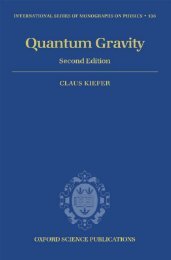Three Roads To Quantum Gravity
Three Roads To Quantum Gravity
Three Roads To Quantum Gravity
Create successful ePaper yourself
Turn your PDF publications into a flip-book with our unique Google optimized e-Paper software.
WHAT CHOOSES THE LAWS OF NATURE?<br />
197<br />
If possibility 1 is true, then all we can do is take the story of<br />
string theory as a cautionary tale. So let us put this one aside<br />
and look at the others. If possibility 2 is true, then we are left<br />
with a puzzle: what or who chose which consistent theory<br />
applies to our world? Among the list of different possible<br />
consistent theories, how was one chosen to apply to our<br />
universe?<br />
There seems to be only one possible answer to this<br />
question. Something external to the universe made the<br />
choice. If that's the way things turn out, then this is the<br />
exact point at which science will become religion. Or, to put it<br />
better, it will then be rational to use science as an argument<br />
for religion. One already hears a lot about this in theological<br />
circles, as well as from certain scientists, in the form of<br />
arguments based on what we might call the anthropic<br />
observation. It seems that the universe we live in is very<br />
special. For a universe to exist for billions of years and<br />
contain the ingredients for life, certain special conditions<br />
must be satis®ed: the masses of the elementary particles and<br />
the strengths of the fundamental forces must be tuned to<br />
values very close to the ones actually we observe. If these<br />
parameters are outside certain narrow limits, the universe<br />
will be inhospitable to life. This raises a legitimate scienti®c<br />
question: given that there seem to be more than one possible<br />
consistent set of laws, why is it that the laws of nature are<br />
such that the parameters fall within the narrow ranges needed<br />
for life? We may call this the anthropic question.<br />
If there are different possible consistent laws of nature, but<br />
no framework which uni®es them, then there are only two<br />
possible answers to the anthropic question. The ®rst is that<br />
we are very lucky indeed. The second is that whatever entity<br />
speci®ed the laws did so in order that there would be life. In<br />
this case we have an argument for religion. This is of course a<br />
version of an argument which is well known to theologians ±<br />
the God of the Gaps argument. If science raises a question like<br />
the anthropic question that cannot be answered in terms of<br />
processes that obey the laws of nature, it becomes rational to<br />
invoke an outside agency such as God. The scienti®c version<br />
of this argument is called the strong anthropic principle.


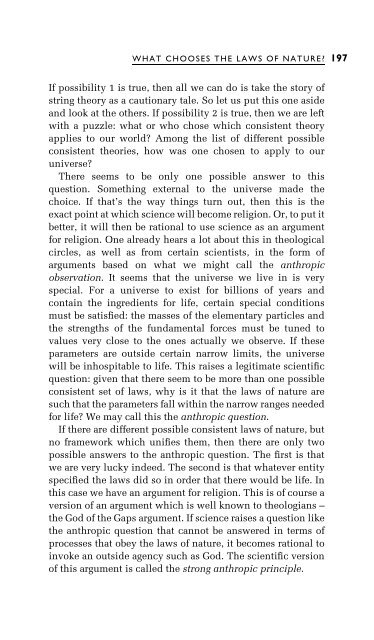
![arXiv:1001.0993v1 [hep-ph] 6 Jan 2010](https://img.yumpu.com/51282177/1/190x245/arxiv10010993v1-hep-ph-6-jan-2010.jpg?quality=85)

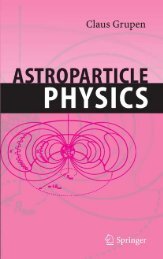
![arXiv:1008.3907v2 [astro-ph.CO] 1 Nov 2011](https://img.yumpu.com/48909562/1/190x245/arxiv10083907v2-astro-phco-1-nov-2011.jpg?quality=85)
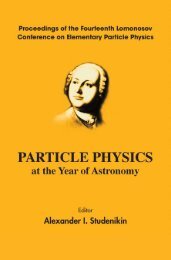
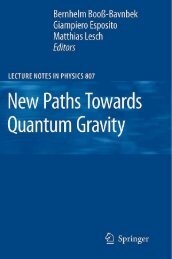
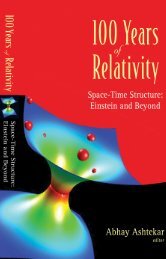
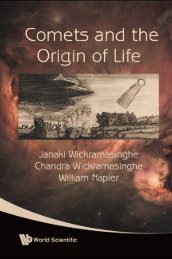
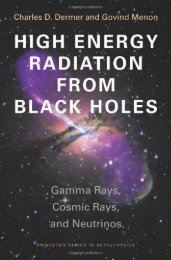
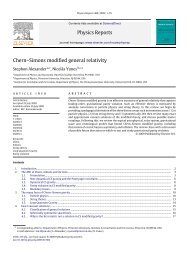
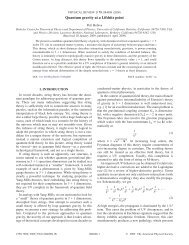
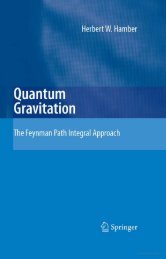
![arXiv:1002.4928v1 [gr-qc] 26 Feb 2010](https://img.yumpu.com/41209516/1/190x245/arxiv10024928v1-gr-qc-26-feb-2010.jpg?quality=85)
![arXiv:1206.2653v1 [astro-ph.CO] 12 Jun 2012](https://img.yumpu.com/39510078/1/190x245/arxiv12062653v1-astro-phco-12-jun-2012.jpg?quality=85)
